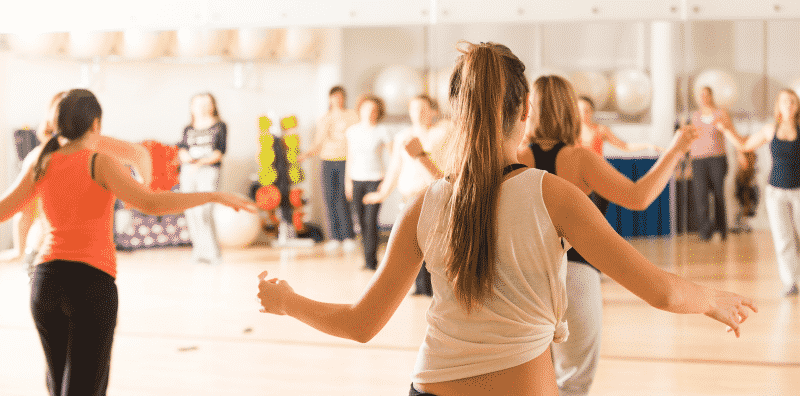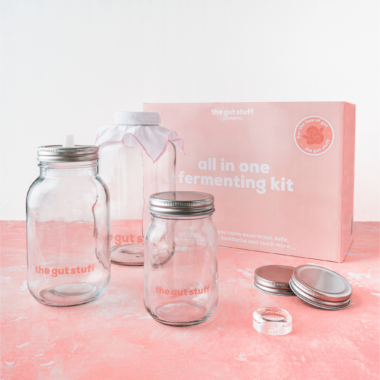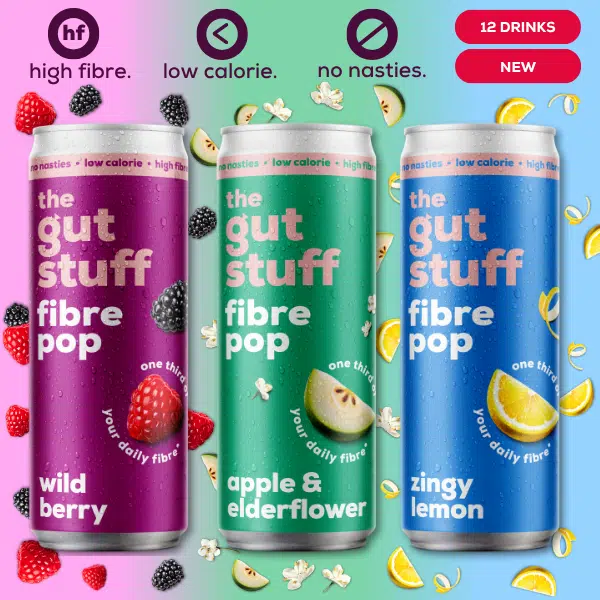
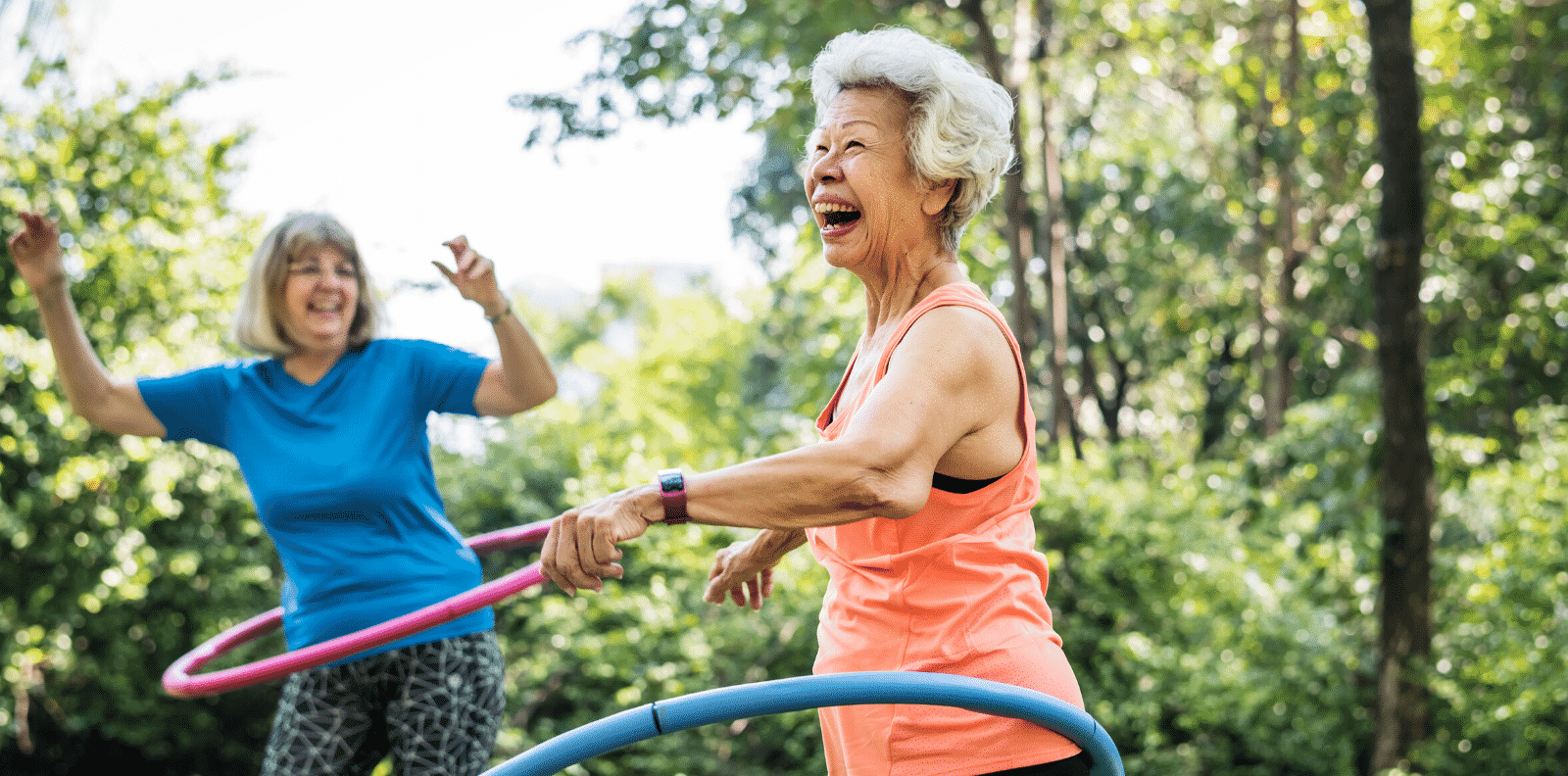
exercise
Exercise has been shown to increase your microbial diversity and is key in maintaining a healthy gut. Read our tips on the best ways to gut movin’.
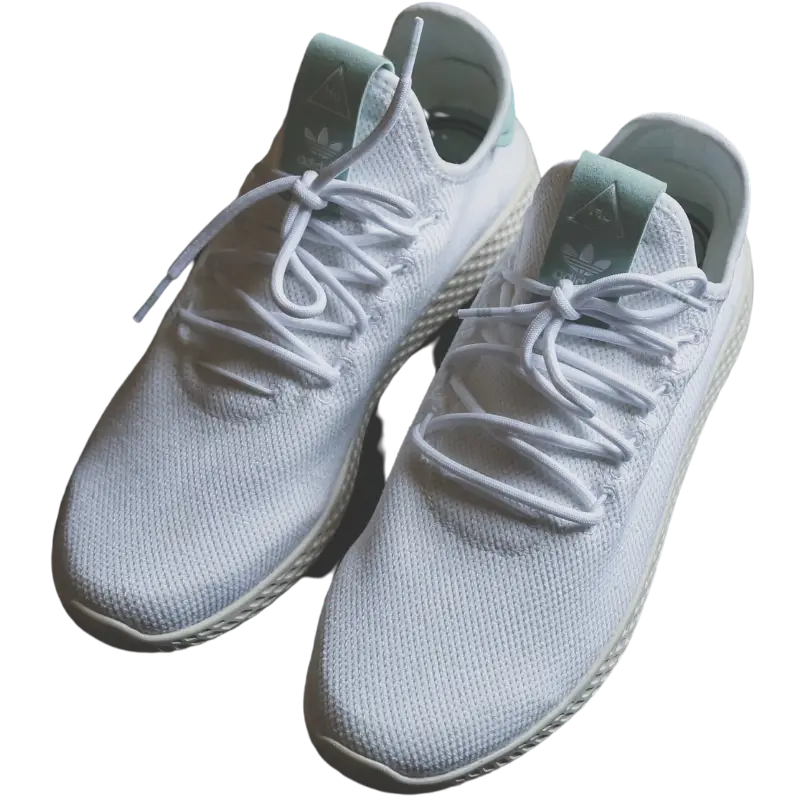
our top takeaways
simple swap
Stand up and walk when you’re on the phone, all those little steps add up which is good news for your gut microbes.
myth bust
Exercise is bad for your gut. False. Some people do experience symptoms when exercising, but this is likely due to the intensity, or something they are consuming.
Exercise isn’t just good for your body and mind but your gut microbes too. It is one of the independent factors that can affect your gut microbes and how well your gut works – for better and for worse.
your gut bugs like you moving and studies have shown that working out increases the populations of beneficial bacteria in your gastrointestinal tract by up to 40% .
In general, exercise increases your microbial diversity. Exercise has been shown to increase the amount of short chain fatty acids, specifically butyrate, produced by bacteria and the types of bacteria correlated to lean muscle mass (aka muscle!). Adequate production of butyrate is crucial for a healthy gut and it may also decrease inflammation….BUT it really depends on what type of exercise and the intensity.
What we do know is that certain beneficial bacteria were increased with exercise:
- Lactobacillus
- Bifidobacterium
- Akkermansia (we love this one)
So should you be hitting the treadmill or the weights to keep your microbes happy?
We wish we could give you the answer but the truth is there isn’t enough research to say what type of exercise is the best. Most of the research points to cardio being beneficial for your gut microbes but that isn’t to say strength training isn’t as important, it is just that the information is lacking.
No matter what form of exercise, if you are working too hard without enough rest, it is going to cause your body stress and if that continues for a prolonged period of time, this can have a negative affect on your gut. Whereas exercise like yoga or Pilates can help get you out of fight, flight or freeze mode and into rest and digest, which is crucial for keeping your gut happy.
Aside from your microbes, exercise also helps with keeping your gut moving. Exercising outside in nature is also a great way to expose yourself to even more different types of bacteria.
your take away? exercise is good for your gut, not too hard, not too little and with just enough rest. variety is key.
i wanna read more on this stuff…
disclaimer: The information on this website is provided as an information resource only and is not to be used or relied on for any diagnostic, treatment or medical purpose. All health issues should be discussed with your GP and/or other qualified medical professional.
